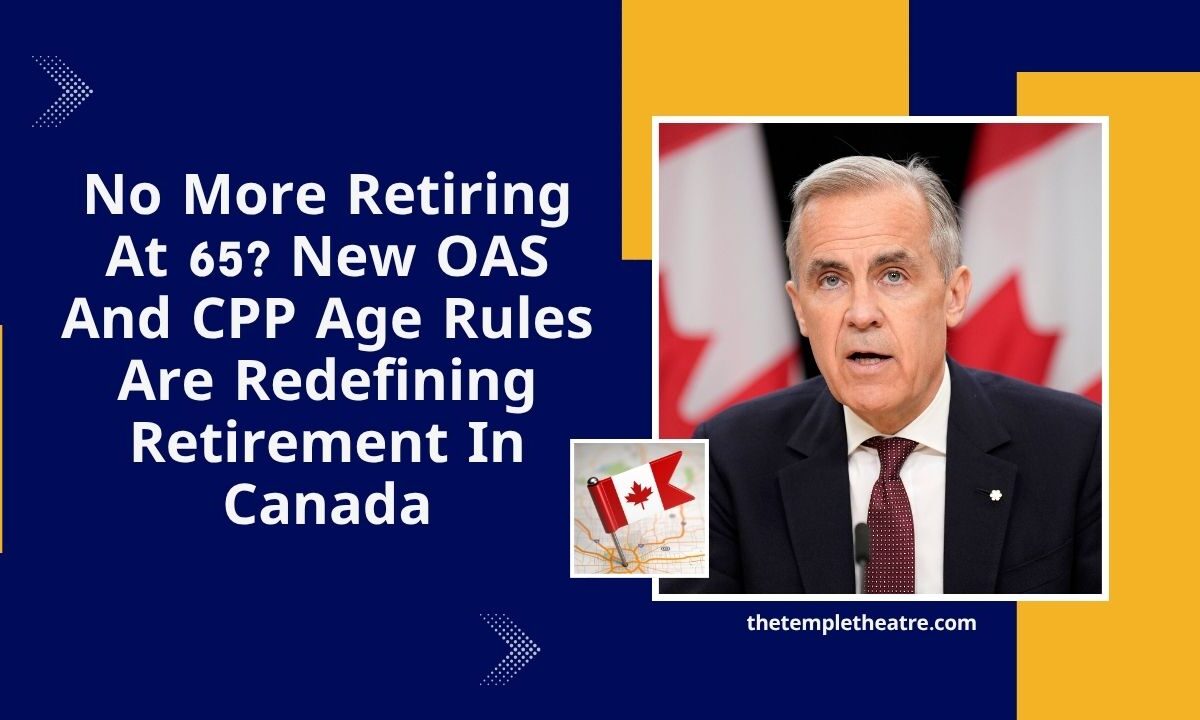For generations, age 65 marked the unofficial retirement threshold in Canada. It signalled the time to stop working and collect Canada Pension Plan (CPP) and Old Age Security (OAS) benefits.
But rising life expectancies, inflation, and changing government policies now mean that retirement age is no longer fixed.
Thanks to flexible deferral rules, Canadians can now choose when their public pension benefits begin—giving retirees more financial control and the ability to unlock significant income boosts by waiting.
The New Age for Collecting OAS and CPP is here, and it’s changing retirement planning forever.
How Deferral Affects CPP & OAS: Numbers That Matter
| Pension Plan | Start Age | Adjustment |
|---|---|---|
| CPP | 60 | –36% (0.6% monthly) |
| CPP | 65 | Standard benefit |
| CPP | 70 | +42% (0.7% monthly) |
| OAS | 65 | Standard benefit |
| OAS | 70 | +36% (0.6% monthly) |
What This Means for CPP
- Canadians can begin CPP as early as 60, but doing so permanently reduces the monthly benefit by 0.6% per month (up to 36% at age 65).
- Waiting until age 70 increases the amount by 0.7% per month, resulting in a 42% boost compared to starting at 65.
- Choosing the timing means balancing earlier income against higher long-term returns—especially helpful if you expect a 20–30 year retirement.
Why Delaying OAS Also Pays
- OAS begins at 65 by default, but deferring it until 70 increases it by up to 36% (0.6% monthly).
- The payment is adjusted quarterly based on inflation and indexed to retain its value.
- Delaying helps protect savings from rising costs and ensures a higher monthly benefit, especially if income is modest.
Changing Retirement Norms in Canada
Today’s retirees tend to live well into their 80s or 90s, meaning retirement income must stretch longer than ever before.
The traditional age 65 safety net no longer fits modern realities—so flexible pension options allow seniors to work longer, remain financially secure, and maximize lifetime income.
Meanwhile, inflation and high living costs have made early retirement financially riskier—especially if savings are limited. The New Age for Collecting OAS and CPP gives seniors more options: retire earlier for flexibility or delay to boost benefits.
Strategic Planning in the New System
Choosing when to start CPP and OAS matters more than ever. Ask yourself:
- What is your health outlook, and how long might you live?
- Can you afford to wait, or do you need income earlier?
- Do you plan to work part-time or stay fully retired?
- Could delaying benefits help protect against inflation or outliving your savings?
Example Income Scenarios
Retiree A delays both CPP and OAS until age 70. Their higher benefits compound into an estimated $9,000+ extra annually, compared to starting at 65.
Retiree B claims at 60 and 65. They have earlier income but miss out on long-term benefit increases—especially risky if they expect a long retirement.
The era of automatic retirement at 65 is shifting. With the New Age for Collecting CPP and OAS, Canadians now face choices—whether to opt for flexibility or long-term gains.
Delaying benefits may not suit everyone, but for many, it offers greater income, inflation protection, and retirement flexibility. As life expectancy rises and financial pressures grow, planning based on personal goals, health, and resources becomes more important.
Instead of seeing 65 as an endpoint, consider it a starting point. Your decisions—and when you make them—can work for you, not against you.
FAQs
Can I still retire at 65?
Yes. Retiring at 65 remains fully valid—but revisiting whether it’s financially optimal is important, given the benefit reductions involved.
Is it better to delay CPP or OAS?
If you’re in good health and have a backup income source, delaying can yield significantly higher lifetime payouts—up to 42% for CPP and 36% for OAS.
Do I need to request deferral actively?
Yes. For CPP, you must apply to defer past age 65. For OAS, you can simply delay receipt up to age 70 and notify Service Canada via your account or enrolment form.
